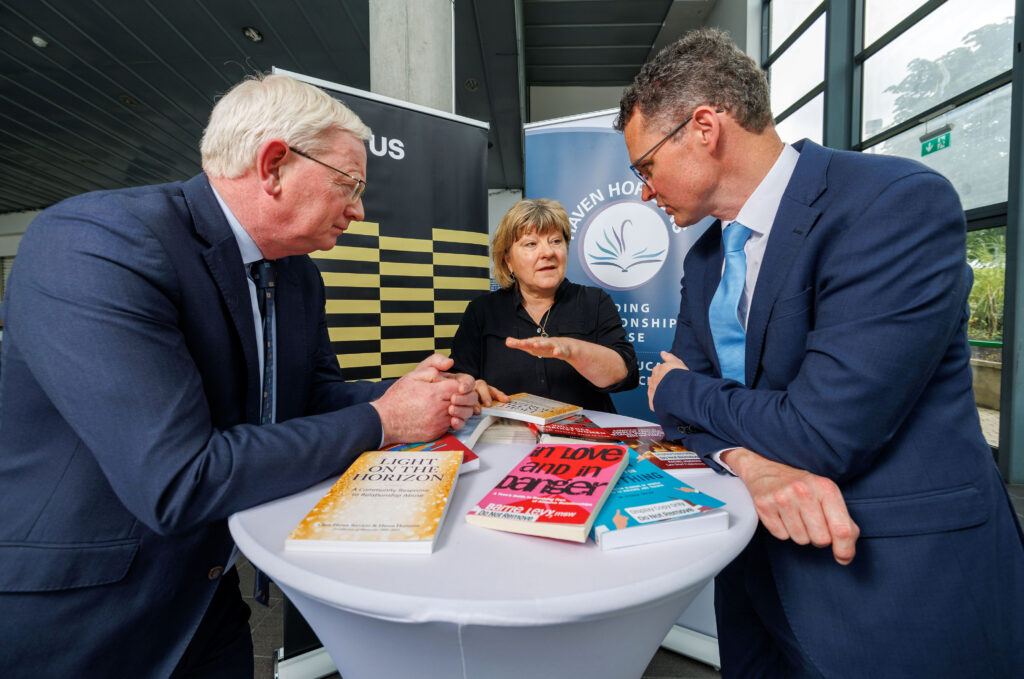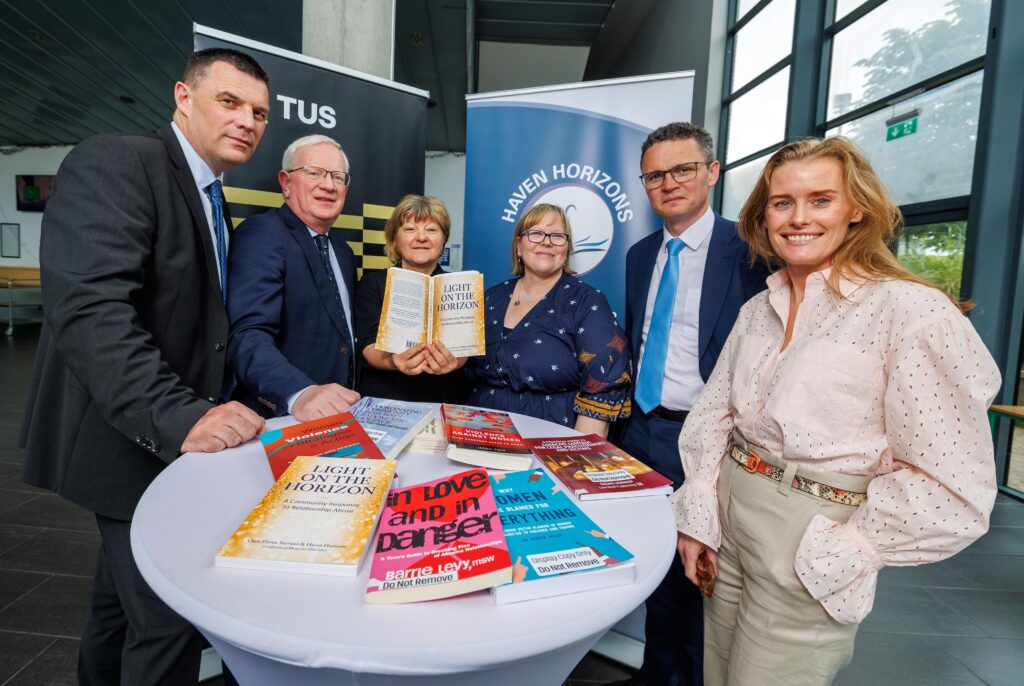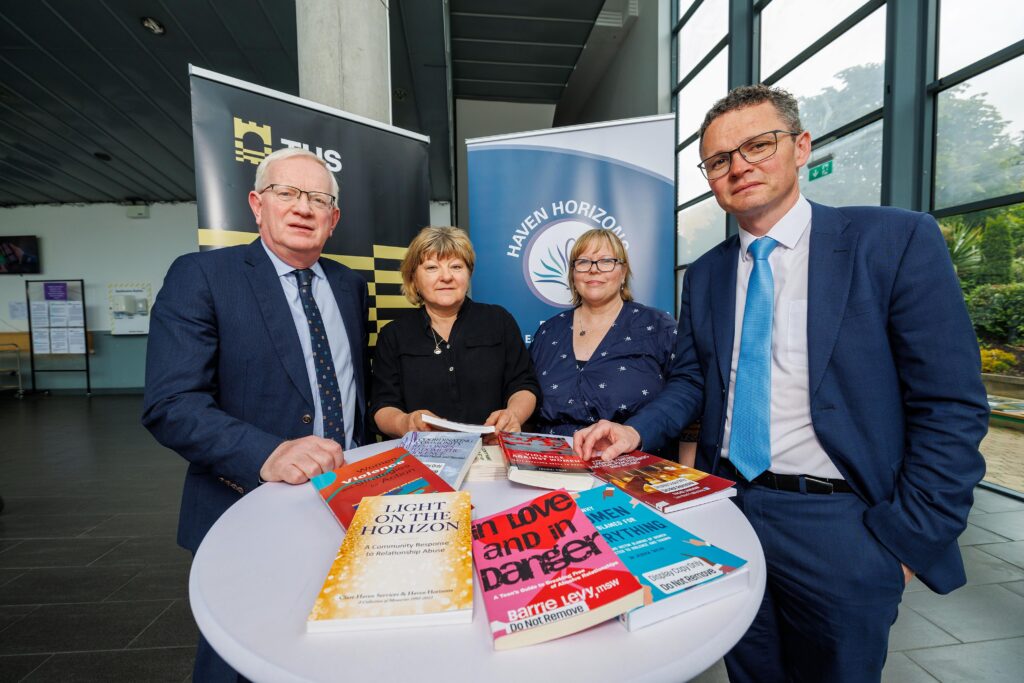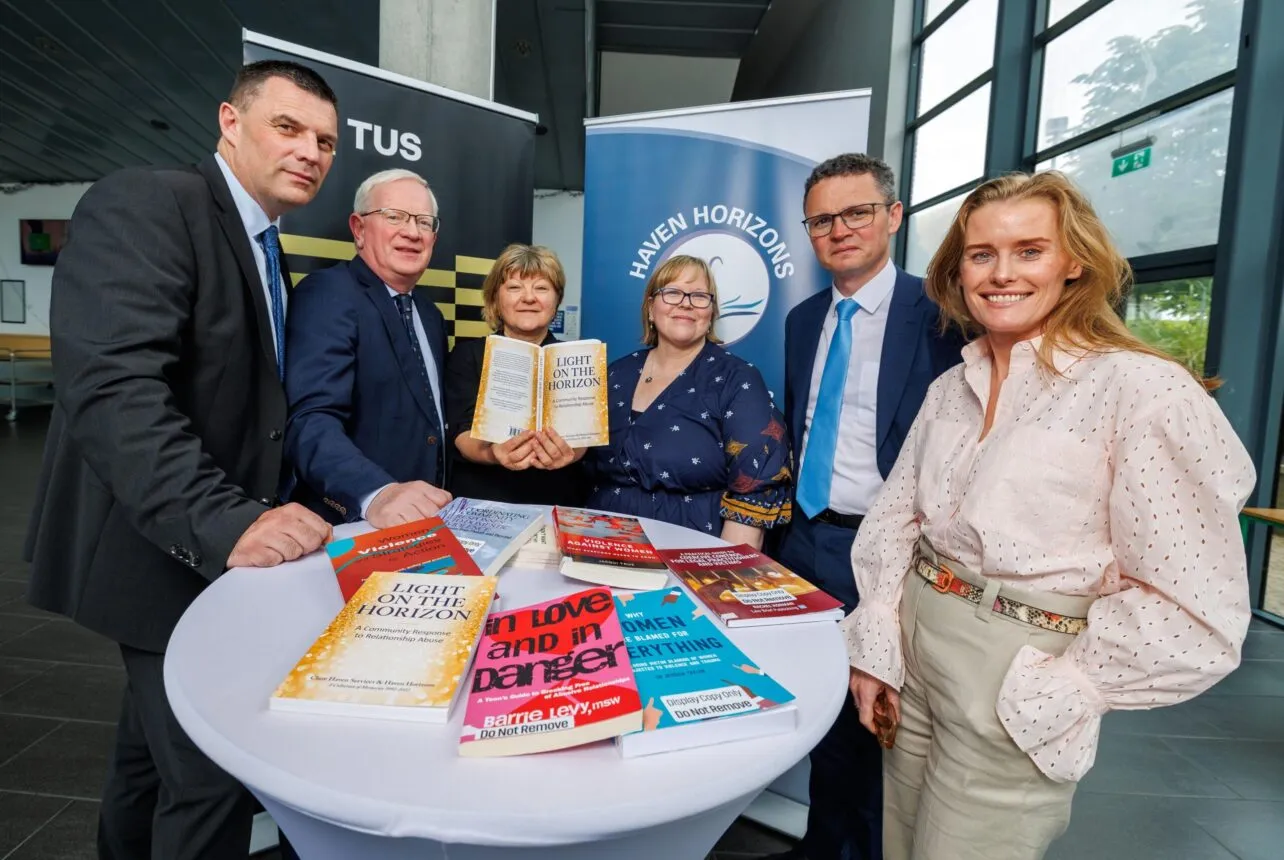Interagency Domestic Abuse and Coercive Control Training is having a positive and critical impact for first responders, researchers and students, data released at a national symposium in Limerick revealed today (Thursday, 13 June).
The event, “Interagency Training Saves Lives” at the TUS Moylish Campus focused on the growing impact of delivering the accredited training known as ‘Reflecting on and Responding to Domestic Abuse and Coercive Control’, which is the only programme of its kind in the country.
It brought together a range of speakers with expertise in the domestic abuse field, including Dr Stephanie O’Keefe, CEO of Cuan, the newly formed State Domestic, Sexual and Gender-Based Violence Agency, who spoke about her vision and the agency’s strategic initiatives to combat domestic abuse nationwide.
Speaking at the event, Patrick O’Donovan TD, Minister for Further and Higher Education, Research, Innovation and Science, said: “Knowing how to recognise abuse, understand coercive control, and provide support can save lives. This programme ensures our frontline workers are well-prepared to help people affected by domestic abuse and to change attitudes towards all forms of violence and harassment.
“It’s crucial that we educate our frontline workers so they can provide this important service in our communities.”

Also speaking at the event, Detective Chief Superintendent Colm Noonan, Head of the Garda National Services Protective Bureau, said: “Domestic abuse is a carcinogenic that has reached every town in Ireland. It is the one call that every Garda will have responded to regardless of their posting, with its effects leaching through generations. In tackling it, there needs to be a systemic, multi-faceted response and that is why working with our social justice partners, academics, victims and survivors ensures that An Garda Síochána are not found wanting in our response to this human right’s issue.”
Hosted byHaven Horizons and Technological University of the Shannon (TUS), the symposium examined the latest insights and strategies to address and mitigate domestic abuse effectively.
Findings from new data by Dr Melinda Gushwa, Head of Applied Social Sciences, TUS, indicated the importance of interagency training for frontline professionals in the domestic abuse field and led to calls for a fundamental change in how funding is allocated to the sector.
The data showed that following the training, 90% of professionals reported increased knowledge about domestic abuse and coercive control, with more than 80% stating the course would influence their professional practice, and 82.2% in favour of further training. A further 82% had implemented changes to their practice since taking the course.
“Graduates were overwhelmingly positive about the course and its impact on their understanding of the dynamics of domestic violence and coercive control,” said Dr Gushwa.
“They were able to take what they learned in the course and immediately apply that knowledge to their practice. This type of learning is transformative and has the power to impact how individuals, agencies and communities respond to and protect survivors of domestic violence.”
She said there was a need for greater awareness of the dynamics of domestic violence and coercive control and the adoption of the programme as continuous professional development (CPD) for Gardaí and others.
Radical change needed
The course launched in 2020 and is aimed at those working with domestic violence and sexual assault services, children and family services, the clergy, An Garda Síochána, healthcare, education and social protection and other organisations.
However, despite the unprecedented investment in frontline services for victims of domestic abuse, the violence remains a prevalent crisis in Irish society.
From 2020 to 2021 there was a shocking 399% increase in domestic abuse-motivated sexual offences. The worst year for domestic abuse related homicides was 2022, while in 2023, 54,000 domestic abuse related incidents were reported to An Garda Síochána. This represents an 8% increase from the year before.

Abuse Frontline Professionals. Pictured L-R Detective Chief Superintendent Colm Noonan (Garda National Protective Services Bureau), TUS President Professor Vincent Cunnane (TUS), Madeline Mc Aleer (Haven Horizons), Dr Melinda Gushwa (TUS), Minster Patrick O’Donovan TD and Dr Stephanie O’Keeffe (Cuan) . Pic Arthur Ellis.
“We need to radically change how we respond to domestic abuse and coercive control. Interagency training delivered geographically is crucial for frontline professionals to overcome the very real barriers that currently exist to effective interagency collaboration.” said Madeline Mc Aleer, the Research, Training and Development Director of Haven Horizons, the national voluntary organisation dedicated to ending domestic, sexual, and gender-based abuse.
She developed the course with Dr Lisa O’Rourke Scott from TUS and is a lecturer on the TUS interagency training.
“Training delivered geographically is crucial for frontline professionals to overcome the very real barriers that currently exist in effective interagency collaboration. Ireland’s Third National Strategy and the Istanbul Convention highlight the importance of both accredited training for frontline professionals and closer interagency collaboration,” said McAleer.
Focusing on the unique barriers to seeking help faced by migrant women who are victims of domestic abuse, Dr Salome Mbugua, CEO of AkiDwA, and gender equality activistremarked: “We need to train frontline professionals and increase the understanding that domestic violence affects women and girls disproportionately and that it based on historical and structural unequal power relations between women and men and on intersectional forms of discrimination.”
Suzanne Walker, Senior Executive Officer with the Higher Education Authority, who leads the Ending Sexual Violence and Harassment in Higher Education programme, welcomed the findings of the research saying: “What we must remember is that sexual violence and harassment are not inevitable, they are preventable manifestations of inequitable power relations, the consequences are devastating for individuals and society. Training plays a crucial part in developing new responses.”

symposium “Interagency Training Saves Lives” which examined the impact of the delivery of the accredited continuous professional development training. Pictured L-R TUS President Professor Vincent Cunnane (TUS), Madeline Mc Aleer (Haven Horizons), Dr Melinda Gushwa (TUS) and Minster Patrick O’Donovan TD. Pic Arthur Ellis.
Commenting on the partnership between TUS and Haven Horizons, President of TUS Vincent Cunnane, said: “We want our work to impact in a real way, and this course is an outcome of our collaborative research approach with the community sector. What we are seeing very clearly now is that professionals in the area view it as having a real positive impact, and so we are ready now to take the next steps with our stakeholders and develop the capacity to train more professionals on the front lines of domestic and relationship abuse.”


